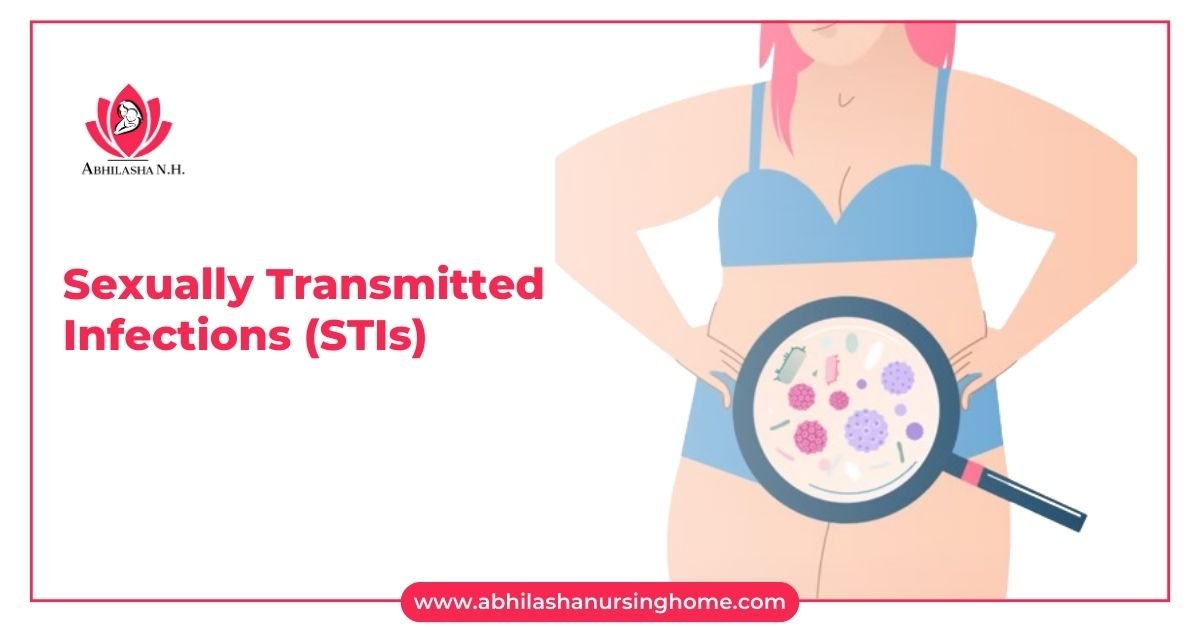Sexually Transmitted Infections (STIs) are infections primarily spread through sexual contact, including vaginal, anal, and oral intercourse. STIs are caused by bacteria, viruses, or parasites, and while some can be treated and cured, others are chronic conditions that require ongoing management. Understanding the symptoms of various STIs is essential for early diagnosis, treatment, and prevention of complications. Let’s explore the symptoms associated with some of the most common STIs.
Symptoms
STI symptoms can vary depending on the type of infection and the individual’s body. Some people may experience obvious symptoms, while others may have mild or no symptoms at all, making regular screening critical for sexually active individuals. Common symptoms of STIs can include unusual genital discharge, itching, pain during urination or intercourse, sores, and swelling in the genital area. However, different STIs present specific symptoms that are important to recognize.
Chlamydia Symptoms
Chlamydia is one of the most common bacterial STIs, particularly affecting young adults. Often referred to as a “silent” infection, chlamydia frequently presents no symptoms, especially in women. When symptoms do occur, they typically appear within 1 to 3 weeks after exposure. Women may experience abnormal vaginal discharge, burning during urination, pain during intercourse, and bleeding between periods. Men, on the other hand, may notice penile discharge, burning during urination, and testicular pain. If left untreated, chlamydia can lead to serious reproductive health issues, including pelvic inflammatory disease (PID) in women and epididymitis in men.
Gonorrhea Symptoms
Gonorrhea is another common bacterial STI that can infect the genitals, rectum, and throat. Like chlamydia, gonorrhea may be asymptomatic, particularly in women. When symptoms do appear, they usually manifest within 2 to 10 days of exposure. In women, symptoms may include increased vaginal discharge, painful urination, and intermenstrual bleeding. Men may experience symptoms such as white, yellow, or green discharge from the penis, painful urination, and swelling or pain in one testicle. Gonorrhea can cause serious complications if untreated, including infertility and an increased risk of contracting or transmitting HIV.
Trichomoniasis Symptoms
Trichomoniasis, commonly known as “trich,” is a parasitic STI caused by the protozoan Trichomonas vaginalis. Symptoms of trichomoniasis often appear within 5 to 28 days after exposure, though some people remain asymptomatic. Women may experience a frothy, yellow-green vaginal discharge with a strong odor, vaginal itching, discomfort during urination or intercourse, and irritation in the genital area. Men are less likely to have symptoms, but if they do, they may notice mild irritation inside the penis, burning during urination, or penile discharge. Trichomoniasis is treatable with medication, but it can increase the risk of contracting other STIs if left untreated.
HIV Symptoms
Human Immunodeficiency Virus (HIV) is a viral infection that attacks the immune system, specifically the CD4 cells, which are vital for immune defense. Early HIV symptoms, often referred to as acute retroviral syndrome or primary HIV infection, can appear 2 to 4 weeks after exposure. These symptoms resemble those of the flu and may include fever, sore throat, fatigue, swollen lymph nodes, and rash. Because these symptoms are nonspecific and temporary, many people do not realize they have contracted HIV. As the virus progresses, the immune system weakens, leading to more severe symptoms and complications.
AIDS Signs and Symptoms
Acquired Immunodeficiency Syndrome (AIDS) is the most advanced stage of HIV infection, characterized by a severely weakened immune system and the onset of opportunistic infections or cancers. AIDS symptoms are varied and depend on the specific infections or illnesses an individual may contract. Common signs include rapid weight loss, recurring fever, extreme fatigue, prolonged swelling of the lymph glands, diarrhea lasting more than a week, sores in the mouth, anus, or genitals, and pneumonia. Early detection and treatment of HIV can prevent the progression to AIDS, making regular testing and adherence to antiretroviral therapy crucial.
Genital Herpes Symptoms
Genital herpes is a viral infection caused by the herpes simplex virus (HSV). There are two types of HSV: HSV-1, which typically causes oral herpes, and HSV-2, which is the usual cause of genital herpes. Symptoms of genital herpes can appear within a few weeks of exposure and include painful blisters or sores on the genitals, anus, or mouth, itching or burning in the genital area, and flu-like symptoms such as fever and swollen lymph nodes. After the initial outbreak, the virus remains in the body and can cause recurrent episodes. While there is no cure for herpes, antiviral medications can help manage symptoms and reduce the frequency of outbreaks.
Human Papillomavirus (HPV) Infection and Genital Warts Symptoms
Human Papillomavirus (HPV) is the most common STI, with many different strains affecting both men and women. Some strains of HPV can cause genital warts, while others are associated with various cancers, including cervical cancer. Genital warts, which may appear weeks to months after exposure, are small, flesh-colored or grey growths in the genital area. They can be raised, flat, or cauliflower-shaped, and may cause itching or discomfort. In many cases, HPV infections do not cause any symptoms and may resolve on their own. However, certain high-risk HPV strains can lead to precancerous changes and cancer, making vaccination and regular screenings vital for prevention and early detection.
Understanding the symptoms of these STIs is key to seeking timely medical advice, reducing the risk of complications, and preventing the spread of infections. Regular screenings, safe sex practices, and open communication with sexual partners are essential steps in maintaining sexual health.

